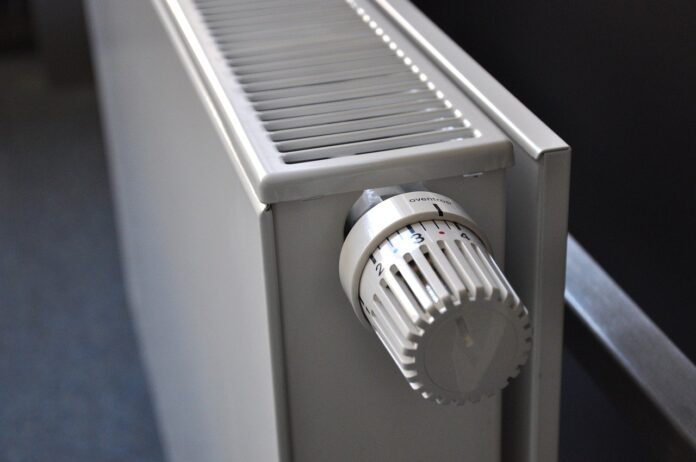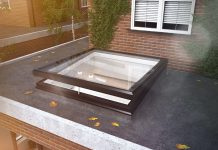Where can we get our energy from? This question has become the hottest debate topic in parliament, local councils and the average person’s home.
Possibly not a question people gave much thought to until the recent war in Ukraine shot energy prices into the realms of outer space.
As Europe works frantically to eliminate its Russian gas requirement, top officials have had to brush off the dust of indifference and actively reconsider how and where we obtain our energy.
This is why super-sized heat pumps have come under the magnifying glass as officials consider using them to heat thousands of homes and businesses.
As a result, a massive scheme is being opened in Gateshead in the hopes it will provide a cheaper, greens source of heating energy.
How The Gateshead Scheme Works
The Gateshead scheme is a series of disused coal mines from back in the day when coal mining was a massive enterprise in the Northeast.
These disused fossil fuel mines will generate the heat for the new heating scheme.
The mines’ boreholes extend to more than 150m beneath the earth’s surface and are flooded with water. This water is the proverbial key to generating the heat we seek as it is naturally warm, sitting at a balmy 15 C.
Using a giant heat pump, the heat from the mine water is transferred to the pump system and put through a series of processes to achieve a higher temperature of 80 C. This heat is then pumped along a network of pipes to local buildings as heating. But the process doesn’t end there.
The mine water used to generate the heat is sent back to its origins (underground), and the cycle starts again. Small heat pumps used at home operate similarly by taking warmth from the air or ground and increasing its temperature to heat that individual home.
However, the giant heat pump has a much greater capacity and can heat approximately 5,000 homes at one go!
Geothermal Heating at A Glance
- Underground water naturally heated by rocks to 15 C
- Pumped to the earth’s surface in pipes
- The heat exchanger uses warmth to raise the water temperature
- The heat pump increases water temperature to 80 C
- Hot water pumped to homes and businesses
- Water returns to the source, and the process starts again
Geothermal heating vs Boilers
Homes and businesses connected to a green heating scheme, such as the one in Gateshead, have heat exchangers rather than boilers.
The heat generated by the heat pump transfers to the water held in the pipes for use in the kitchen, bathroom, and radiators, thus removing the need for standard gas boilers.
This is a major breakthrough for energy supplies and consumers alike, especially with the steep increase in gas prices and the uncertainty over Europe’s gas supply from Russia. As a result, everyone is searching for alternative energy sources.
Giant Heat Pumps in London
In the heart of London, nestled behind the Port Of London Authority Building, consumers will be interested to learn that energy giant, EON, has installed super-sized heat pumps.
The Citigen plant has in the past used fossil fuels such as coal, oil and gas to provide energy.
However, it will now generate renewable energy by using these giant heat pumps. Beneath the city, an aquifer filled with naturally warm water will provide the water required to run the heat pump system.
This scheme will provide green heating to many buildings and homes all at once, reducing costs and helping to fight climate change.
Heat Pumps Tackling Climate Change
With more than 30 million buildings in the UK to heat, greenhouse gases are at an exponential high.
Rethinking how we heat our homes and businesses is the answer when it comes to proactively tackling climate change. Many businesses recognise the need for a greener approach, thus working on reducing their carbon footprint.
However, homeowners are not far behind in this thought process. Unfortunately, more needs to be done. Rethinking how we heat our buildings and homes could be the extra boost required to reduce the damaging effects of non-green heating solutions.
This is why green district heating schemes seem to be the answer, but currently, they only account for around 2% of the UK’s heating. This needs a dramatic increase to affect climate change and reduce energy costs for the future. The good news is that these district schemes don’t require specific site locations.
Besides the abandoned mining shafts at Gateshead and London’s aquifer, district schemes are also possible in locations where access to rivers, lakes, or seawater is available. This surface water can be used to generate the heating required for such heating schemes. Obviously, this solution comes with its own issues, such as planning permissions, rezoning, environmental protection laws, and costs. After all, a green heating solution that effectively damages the environment when it is installed is pointless!
Installing individual heat pumps to heat residential homes as a means to solve the problem of climate change may take some time. Nevertheless, the government aspires to have more than 600,000 installed each year by 2028.
Staging A Takeover
Super-sized heat pumps undoubtedly seem capable of staging a boiler takeover. District heating schemes such as Gateshead and London are well on their way to proving this.
However, these schemes require space and time to develop and set up. That’s not to say giant heat pumps aren’t the future. On the contrary, their many benefits to the climate, environment and consumers’ pocket mean they are definitely on the ‘energy menu’ in terms of finding an alternative energy source.
However, just how long this takeover process will take remains to be seen. In addition, these schemes are only the tip of climate changes’ melting iceberg; a lot more needs to be actioned to combat these issues.
As a consumer looking to reduce your bills and contribute to the war against climate change, perhaps installing an individual heat pump in your home is the answer?
After all, why wait for change if you can instigate it yourself?







